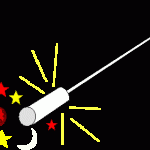Maudsley Myths: Look, Mom: No Therapy!
Family-Based Maudsley Therapy Is Not a Do-It-Yourself Approach
There is a mistaken idea out there that Maudsley treatment for eating disorders is something parents can just decide to do without professional support. While I know families who do take on the re-feeding (weight restoration) responsibilities, I think it is important to keep in mind that this is only one part of the approach, and why it works well for so many families.
Why You Need a Trained Family-Based Maudsley Therapist During Anorexia and Bulimia Treatment
A lot of parents learn about "The Maudsley Approach" and think they can just start feeding their child and monitoring meals and save the therapy visits. I think this is a mistake for a number of reasons.
- Re-feeding is only one part of the therapy.
- Weight restoration at home is one of the hardest things most parents will ever do and it deserves trained support.
- Each set of parents is new to the ways patients respond to re-feeding, while trained professionals know what to expect and how to respond.
- If things don't go well, the family needs alternatives and a trusting relationship with an eating disorder expert.
- Patients deserve to see that their parents are working with a professional team and that Mum and Dad are trusted by them to undertake this challenging task.
- This approach has a demonstrated high rate of success, as manualized. The rates for care done at home without that support are unknown.
Family-Based Maudsley Is Not Just Weight Gain
Weight restoration and normalization of eating is a very important part of eating disorder recovery, but is rarely the only thing needed. The Maudsley treatment approach has three phases, and they are all important for the patient and the rest of the family, including siblings. The phases involve:
- aligning parents together against the illness (not the child) and taking over responsibility for weight gain and food normalization (important for both anorexia and bulimia)
- turning responsibility back to the patient
- finally, returning the family to age appropriate functioning and relationships
There are specific techniques involved, as well as prior training in the illness.
 In addition, a therapist also serves as a mental health expert who can recognize any co-morbid (other) illnesses or problems that may derail the eating disorder recovery.
In addition, a therapist also serves as a mental health expert who can recognize any co-morbid (other) illnesses or problems that may derail the eating disorder recovery.
I Don't Recommend It
My family could not locate any professionals trained in the Maudsley approach when we needed it, back in 2002. We ended up finding a local family therapist willing to read the literature and work with us. We also had to train our family doctor and ourselves. I don't wish that on anyone. We made mistakes and flailed horribly at times. We were lucky, but it was a great risk. Later, when our daughter struggled again, we were fortunate to find a professional Maudsley clinician to work with - it was a completely different, and successful, intervention.
It is still difficult to find eating disorder specialists trained in Family Based Maudsley, but getting easier as more people have taken formal training and there is now a certification available for therapists. I really believe parents need to seek out and secure the services of these experts: this illness deserves the best assistance we can offer our dear loved ones!
APA Reference
Collins, L.
(2010, August 2). Maudsley Myths: Look, Mom: No Therapy!, HealthyPlace. Retrieved
on 2026, February 2 from https://www.healthyplace.com/blogs/eatingdisorderrecovery/2010/08/maudsley-myths-look-mom-no-therapy